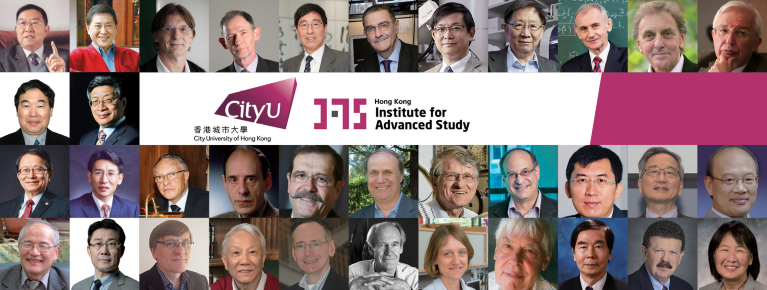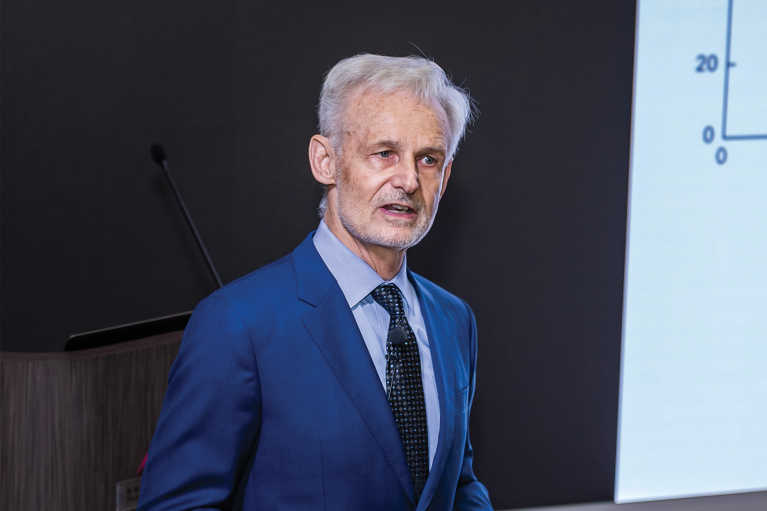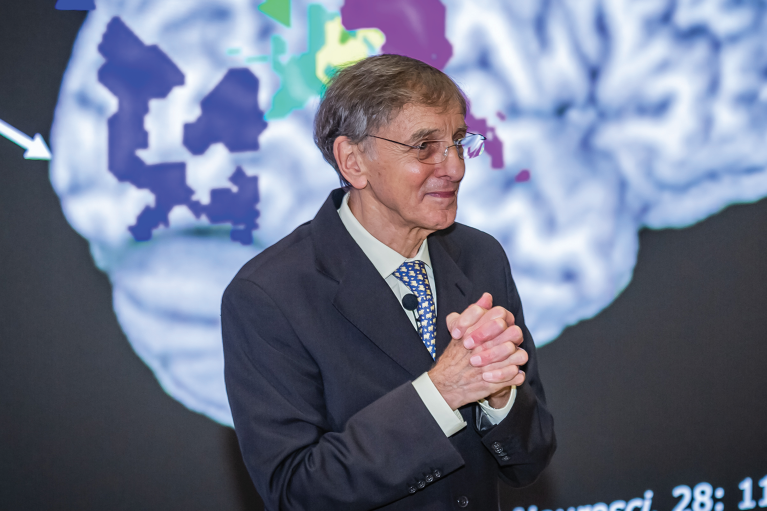
Credit: Hong Kong Institute for Advanced Study, City University of Hong Kong
The interdisciplinary nature of neuroscience continues to invite new perspectives on the brain. Yet, there are still many unknowns about the organ responsible for the biological success of the human species. Organized by the Hong Kong Institute for Advanced Study (HKIAS) at the City University of Hong Kong (CityU), and as part of the HKIAS Distinguished Lecture Series on Life Sciences, two talks explored the human brain’s mysteries.
The brain consumes a disproportionally large amount of oxygen and glucose, according to Bruce Ransom, chair professor and head of Department of Neuroscience at CityU and professor emeritus of Department of Neurology at the University of Washington.

On 4 May 2020, Bruce Ransom gave a talk titled “Acute Ischemic Stroke:Why Don’t We Have Better Treatments?”.Credit: Hong Kong Institute for Advanced Study, City University of Hong Kong
In his talk, Ransom explained that when normal blood flow is impaired, oxygen depletion can damage the brain, causing ischemic stroke. Ransom discussed the obstacles to developing effective drugs for stroke, a leading cause of death globally, and explained why no neuroprotective drugs have worked so far in human trials. A new strategy is to block the primary route of water movement into the brain, following ischemia, and an inhibitor is showing potential in preventing brain swelling.
Colin Blakemore, Yeung Kin Man chair professor of Neuroscience at CityU, and senior fellow at HKIAS, reviewed the evolutionary trajectory of the human brain. He believes that the evolution of the brain was due to selective advantage.

On 8 May 2020, Sir Colin Blakemore gave a talk titled “The Past, Present and Future of the Human Brain”.Credit: Hong Kong Institute for Advanced Study, City University of Hong Kong
“Every human brain is re-engineered by individual experience,” Blakemore said. “Human cognitive capacity is largely the result of cultural inheritance, and there is no reason to believe that cultural evolution is finished.”
“It is our pleasure to have these neuroscience leaders speak at our new lecture series of excellence, sponsored by the Kwang Hua Educational Foundation,” said Jacob Huang, executive director of HKIAS and chair professor of the Department of Materials Science and Engineering at CityU. “We hope to showcase life scientists and neuroscientists at CityU, whose research cuts across traditional disciplinary boundaries, and to explore for collaboration opportunities at CityU and beyond.”
Accelerating research growth
Since launching in 2015, HKIAS has quickly gained a reputation as a dynamic centre of scientific advancement by inviting internationally recognized experts for cross-disciplinary exchanges. Its number of senior fellows has grown from 10 in 2015 to 35 today. HKIAS initiated a series of lectures to allow CityU students to learn directly from these prominent academics, and engage in intellectual debate on major contemporary trends and issues.“We plan to organize these special talks each month. Beyond life sciences, we will also have series on mathematics, natural sciences, materials science, and biomedical sciences, where CityU has existing strengths,” Huang said. “Through these events, we hope to form collaborative research teams and develop high-level research projects.”
A powerful endorsement of HKIAS's potential is a donation of HK$15 million, recently received from the estate of the late Sze-yuen Chung, one of Hong Kong's most influential figures. “It is a remarkable recognition of HKIAS, and will allow us to continue pursuing ideas and researches which contribute to the advancement of knowledge and betterment of mankind,” said Huang.


